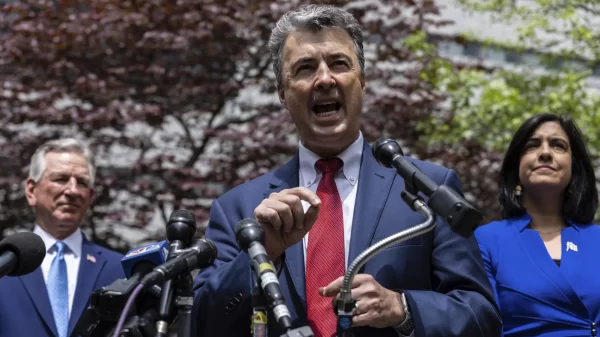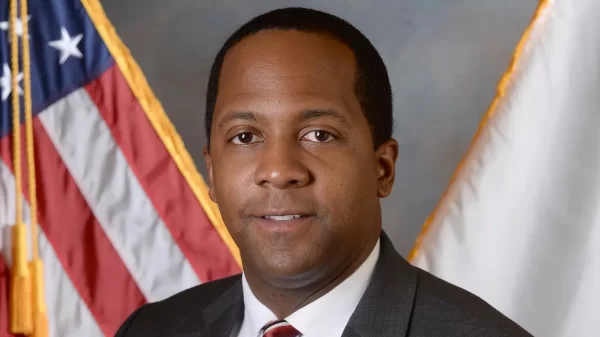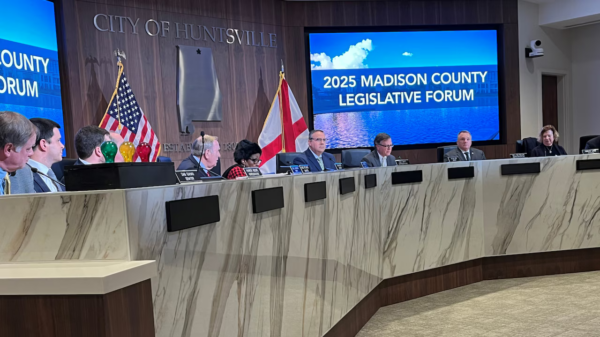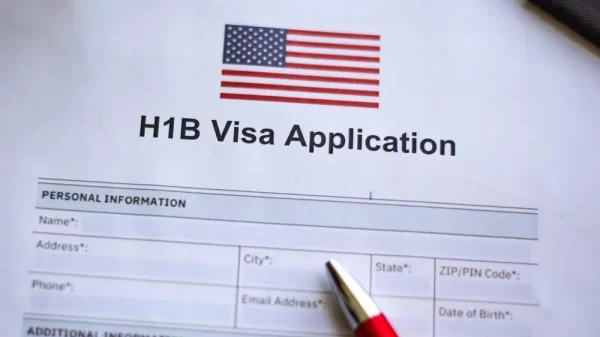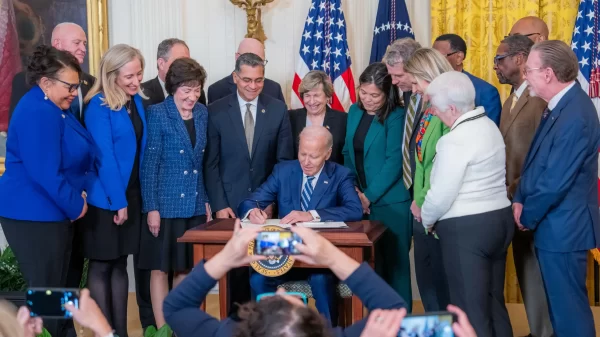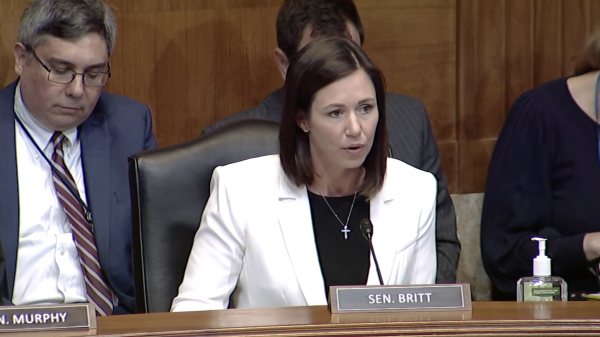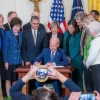|
Getting your Trinity Audio player ready...
|
On Monday night, Madison County lawmakers gathered at Huntsville City Hall to hear citizens’ policy concerns ahead of next month’s legislative session.
Among those who spoke at the Madison County Legislative Forum were three union members from the North Alabama Area Labor Council (NAALC), AFL-CIO, who brought labor issues to the forefront of the meeting.
Whitney Washington, a member of the Communication Workers of America Local 3908, spoke in support of SB22, sponsored by State Sen. Merika Coleman, D-Birmingham, which would revoke tax incentives from companies who violate Alabama’s child labor laws.
“Last year, the Alabama legislature passed SB231, a piece of legislation weaponizing public funds to attack unions. Specifically, the legislation would revoke any tax incentives from a company that choose to voluntarily recognize their workers’ union. Now that this precedent has been set, that we can use incentives to push towards broader social goals, I hope that our legislative delegation will support also support legislation aimed at curbing something much worse than the dread labor union – child labor,” Washington said.
“Specifically, Senator Merika Coleman has introduced SB22, which would revoke tax incentives from companies that violate our child labor laws. I don’t think that it should be difficult to say ‘no public money for child labor exploiters.’ I hope you all will support this bill,” Washington continued.
Substantial claims of child labor exploitation have been levied against two major employers in Alabama. In May of 2024, the U.S. Department of Labor filed lawsuits against Mar-Jac Poultry of Alabama and Hyundai Motor Manufacturing Alabama, accusing the companies of utilizing “oppressive child labor” and violating the Fair Labor Standards Act.
“At Hyundai suppliers, minimally dozens of people under the age of 16 are believed to have been working in manufacturing environments – a violation of state and national laws. What was the punishment from the state for this? A measly $6,000. Barely a fraction of a single new vehicle. Just down the road in Cullman, Alabama, a 15 year old was killed on his first day on the job – roofing. Also prohibited by state and national laws, and as far as I can tell, the company was never fined by the state of Alabama,” Washington added.
“A $6,000 fine will not stop multi billion dollar international corporations like Hyundai from exploiting Alabama’s children. A single individual will not be able to even uncover when this is happening. Revoking hundreds of millions of dollars in incentives may not even be enough. But at the very least, it won’t be our public dollars that fund these grotesque practices. I hope that this delegation will support the cessation of public funding for child labor exploitation,” Washington concluded.
Adam Keller, another NAALC delegate and a member of the International Alliance of Theatrical and Stage Employees (IATSE) Local 900, also stressed the importance of fighting against child labor in the state. Keller also urged the lawmakers to support a broader set of legislation that would tie economic incentives to policies that would support Alabama families, including paid parental leave, no mandatory overtime, and retirement benefits.
“I hope that our legislative delegation will support a suite of legislation that I expect to be introduced during this session that will strengthen Alabama’s commitment to children and families through our tax incentives to corporations,” Keller said.
Keller spoke in support of State Rep. Neil Rafferty, D-District 54, and a bill which Rafferty plans to introduce which would compel the Department of Revenue to enforce an existing statute requiring temporary staffing agencies to register with the Department of Commerce.
“We know that the epidemic of child labor in Alabama is largely driven by temporary staffing agencies. Existing laws already require these agencies to register with the Department of Commerce, but there is no enforcement. Representative Rafferty will be introducing a bill to compel the Department of Revenue to enforce the existing statute,” Keller said.
Keller then discussed other “pro-family, pro-child, and pro-worker” legislation that he would like to see lawmakers support.
“[Rafferty] will also be introducing legislation forbidding manufacturers who receive economic incentives from instituting mandatory overtime policies, to ensure workers can spend time with their families if they are so inclined,” Keller continued. “I would also like to see additions to similarly mandate parental leave, living wages, and strong retirement plans – ideally defined benefit pensions.”
“This is a common sense suite of legislation that we should all be able to agree on. I do not want my tax dollars to fund the exploitation of children, the overworking of parents, or the poverty of working people while also funding the exuberant lifestyles of the out of state international corporate executives and private equity managers. I do not believe that I am alone in this room or in the state. I hope that this delegation will support this pro-family, pro-child, pro-worker economic incentive agenda,” Keller concluded.
The NAALC president, Jacob Morrison, also spoke at the forum, calling on legislators to maintain the overtime tax cut, and to find “necessary revenue from any potential budget shortfall from other places, in particular from the wealthy, instead of taxing workers first.”
“Last year, the Alabama legislature passed multiple new pieces of legislation that deplete funds from the Education Trust Fund. In particular the elimination of the income tax on overtime wages is estimated to have been a much bigger drain than initially projected (at as much as 240M in 9 months), though the exact amount is contested [and] the CHOOSE Act, which will drain as much as 100M in the first year and who knows how much in future years. If other states provide a guide, we could see significant cuts to the budget,” Morrison said.
“Instead of looking to repeal the CHOOSE Act, however, which will primarily benefit wealth parents who already send their children to private school once the income eligibility cap is lifted, or even looking to make permanent the income eligibility cap, State Senator Arthur Orr is laying the groundwork in interviews for the idea of not renewing the overtime tax cut to fill this purported budget shortfall,” he continued. “I oppose this explicit choice to side with wealthy Alabamians over working Alabamians, and hope that our legislative delegation will, as well.”
“While I am not anti-tax, far from it, there are clearly much better places that you could take from to fill this potential budget shortfall,” Morrison explained.
“For example, Alabama currently allows taxpayers to deduct their federal income taxes from their state income taxes. Low income Alabamians receive an average benefit of $3 per year from this deduction. Even upper income taxpayers in Alabama only receive $549, while the top 1 percent of Alabama taxpayers benefit to the tune of $12,901 per year. Only one other state has such a deduction,” Morrison continued. “Repealing this benefit for the wealthiest people in Alabama would generate as much as $833M annually. This would more than cover even the most extreme estimates for the shortfall from the overtime tax cut, while also covering at least the current shortfall from the CHOOSE Act.”
Morrison added that repealing the CHOOSE Act, making the income cap permanent, or simply raising taxes on the wealthy would also prevent a potential budget shortfall.
“I hope that this delegation will choose to seek revenue from the wealthy in Alabama, rather than raising taxes on workers first,” Morrison said.
An official NAALC press release described its members’ policy proposals as “common sense ways to support workers and our families in Alabama” and stated that “North Alabama’s unions sincerely hope that our legislative delegation support these policies.”



